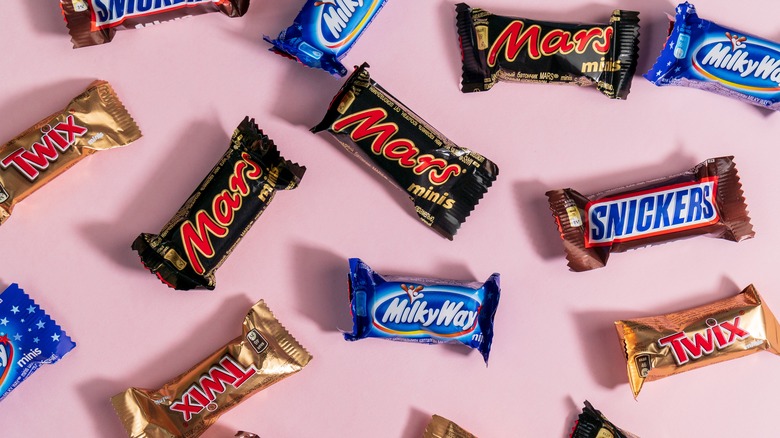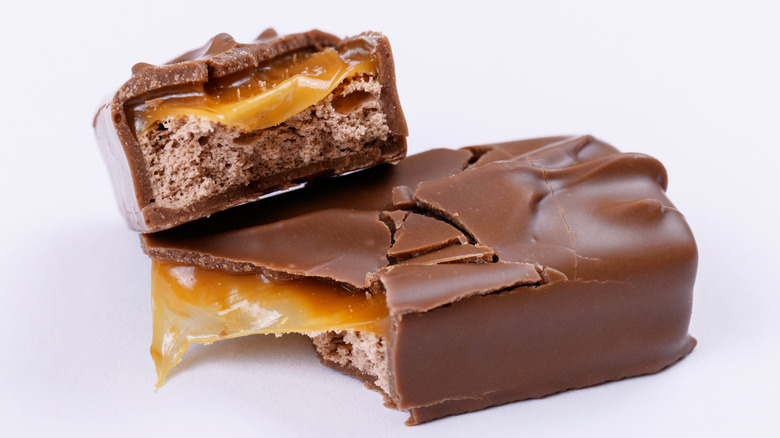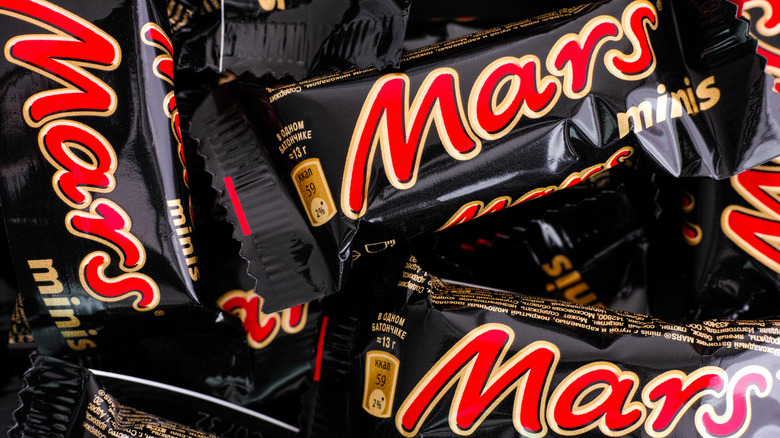The Relentless Dynasty Behind The Mars, Inc. Fortune
The uber-wealthy receive a lot of attention, but it is usually placed on individuals like Elon Musk, who has a big personality and a cult following. Far less attention is paid to wealth passed down through family dynasties. The Institute for Policy Studies estimates that, in 2020, America's 50 wealthiest families held a combined $1.2 trillion in assets, whereas the bottom 50% of all American households (approximately 65 million families) held a combined $2.5 trillion. That's the power of dynastic wealth. But the families who control this kind of money tend to garner far less attention than the newly-minted moguls of Silicon Valley. For instance, did it ever occur to you that the pack of gum in your pocket is part of a $94 billion empire?
Mars, Inc. owns more brands than you'd imagine. Snickers, M&Ms, Milky Way, Dove, Twix, Starburst, and Skittles all fall under the Mars domain, as do most of the big names in gum, including Wrigley, Orbit, Eclipse, Extra, and 5. The conglomerate also owns a number of other edibles, most notably Ben's Original, as well as a vast network of petcare brands including Iams, Pedigree, Royal Canin, and VCA Animal Hospitals. This entire collective is privately owned by the Mars family, which ranks as the third-richest family in the country after the Waltons (owners of Walmart) and the Kochs (famed for their political contributions). Theirs is a tale of innovation, competition, and secrecy (like "Succession" but with more calories), so let's peel back the curtain on one of the world's wealthiest bloodlines.
The origins of the Mars dynasty
Mars, Inc. began with Frank C. Mars, born in Glenwood, Minnesota in 1883. As a boy, Frank contracted a case of polio that kept him out of school. Confined to the home, he passed the time with his mother, Elva, who taught him how to make hand-dipped chocolates. In 1911, while living in Tacoma, Washington, he parlayed this skill into a full-blown business, selling butter cream candies he made in his home kitchen. In 1920, Frank returned to his home state and founded the Mar-O-Bar Company in Minneapolis, but the business struggled mightily in its first years. Everything changed in 1923 when Frank was inspired by a conversation with his son Forrest to create a chocolate bar with the flavor of malted milk. He dubbed his new confection the Milky Way bar.
Tensions began brewing in 1929 when Forrest Mars joined his father in the growing family business. The two had a strained relationship, and after a falling out in 1932, Forrest moved to England to start his own company. He later returned to the United States to merge his business with his father's, but not before accomplishing two game-changing feats abroad. First, Forrest used the Milky Way recipe to create the Mars Bar, which remains a classic overseas; and second, he purchased the English dog food brand Chappel Bros, marking Mars, Inc.'s first foray into pet care. When Frank C. Mars died in 1934, Forrest took over, growing the business into a global empire.
The Mars family today
Frank Mars and his wife Ethel became prominent members of high society in the 1930s. Ethel even owned a Kentucky Derby-winning horse. However, the Mars family retreated from the public eye once Forrest took over. He became very secretive about the business after the U.S. military tried to overturn his patent on Ben's Ready Rice. This confidentiality continues to the present day, reflected by the current Mars headquarters in Virginia, an unmarked building near the CIA offices. The family is intensely private, a trait they seem to have inherited from Forrest, who avoided interviewers and photographers throughout his life. When he died in 1999, the company was passed on to his children, Forrest Jr., John, and Jacqueline.
Forrest Mars Jr. died in 2016, but John and Jacqueline still own the business, each with an estimated net worth of $24 billion. They, along with Forrest Jr.'s four children, all rank on the Forbes 400 list. The family stays out of the public eye for the most part, except when they lobby the government for causes that support their dynastic wealth, such as lowering estate taxes or changing daylight savings time to add an extra hour of light to Halloween, boosting the hours of trick-or-treating (and therefore candy sales). The company is now chaired by Jaqueline's son, Stephen Badger, who has been more transparent in his business dealings, but by and large, the Mars family remain among the most reclusive of America's billionaire class.


